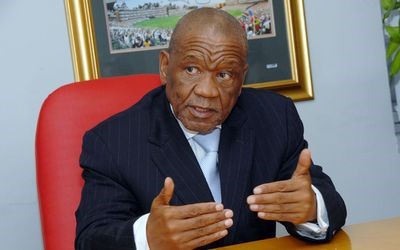 Lesotho's prime minister, Tom Thabane, who fled to South Africa on Aug. 30 to avoid being seized by the country's military forces, is attempting to return to Maseru and retake his position.
Lesotho's prime minister, Tom Thabane, who fled to South Africa on Aug. 30 to avoid being seized by the country's military forces, is attempting to return to Maseru and retake his position.
Thabane and his political rival, Deputy Prime Minister Mothetjoa Metsing, have since been meeting with South African officials and other regional mediators in a bid to resolve Lesotho's domestic political crisis. While Thabane has asked for a regional peacekeeping force to intervene and support him in taking back power, the conditions that would have neighboring countries send military forces to Lesotho do not currently exist.
South Africa intervened militarily in Lesotho in 1998 during a political crisis involving competing factions of the country's political and security elite. Significant disorder on the streets of Maseru threatened to send Lesotho's civilian population spilling into South Africa and destabilize South Africa's precarious balance between the interests of its citizens and those of the refugee and African immigrant populations residing in South Africa. In addition, the Lesotho Defense Force's occupation of the Katse Dam (part of the Lesotho Highlands Water Project) had the potential to cut off crucial water supplies from Lesotho to South Africa. The instability these two developments could have spurred compelled the South Africans to send military forces.
Lesotho's current crisis between its political factions, backed by competing security forces, is not yet escalating into significant disorder. Furthermore, there has been no move to occupy and threaten the supply of water from the Highlands water dams. Unless these circumstances change, there will be no military intervention. South African diplomatic mediators will instead seek power-sharing talks to achieve an accommodation between Thabane's and Metsing's factions of the Lesotho elite.
Courtesy : Stratfor (www.stratfor.com)